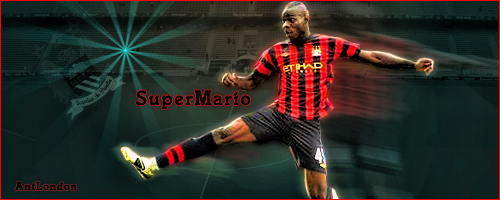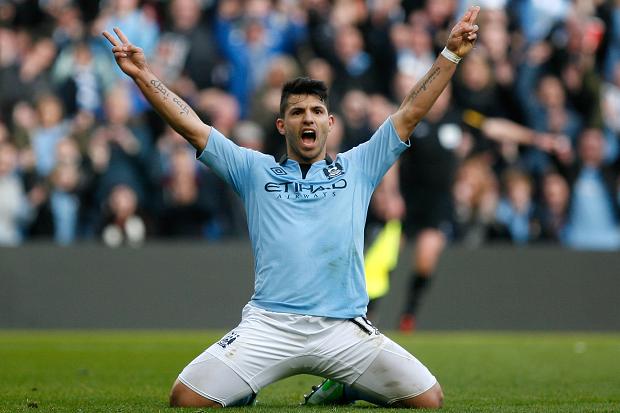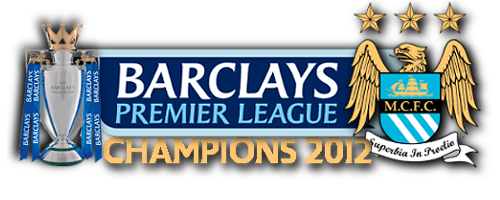
The mancityfans.net football forum
The BEST FORUM in all the land and all the world



ant london wrote:from yesterday's Telegraph....a lengthy but very interesting article IMO. Esp of course in the light of our manager
Italian stereotype degrades Roberto Mancini and Serie A
Rarely do Manchester City fans find reason to complain when their side has overcome their all-conquering rivals from down the Mancunian Way.
Seeing Manchester U***d’s Red Devils swamped by the sky-blue sea is such a treasured occasion that it seems churlish to find fault with the method by which it is achieved. Perhaps, then, it is a mark of how much the outlook of City’s fans has been changed by the billions of Sheikh Mansour, by the excitement which surrounds the club, that last Tuesday’s Carling Cup semi-final win was deemed, by some, insufficient.
The general theory seemed to be that U***d, rocking back on their heels after Carlos Tevez first equalised and then fired City ahead, were there for the taking. Instead, City, lining up with three defensive midfielders – Pablo Zabaleta, Nigel de Jong and Gareth Barry – failed to go for the jugular, content merely to protect what they had. A 2-1 win leaves the tie as finely poised as the balance of power in what is, arguably, England’s greatest footballing city (that, though, is another blog, for another day).
Consensus had it that there was only one reason for City’s reticence to pour forward. “He’s Italian,” bemoaned Gary Lineker after the game. Roberto Mancini, that is. He’s from Jeda, you see, in Italy, and it is a widely-believed fact that football managers from Italy are all defensive cynicism and impeccable tailoring.
Lineker, obviously, is not the only person to have bought into the idea that Italian football is inherently cautious. If he was, he would not have said it, the increasingly orange former Leicester front-man being famously afraid of original thought. It is a stereotype which endures from the 1960s heyday of catenaccio, and it is, as with all cliches, based partially in truth. Nereo Rocco, who would go on to manage Milan, introduced the system – first pioneered at Servette in Switzerland by Karl Rappan – at Padova in the 1950s, before Helenio Herrera perfected it with Inter. Pure catenaccio is a simple construct, achieved by playing a defensive sweeper behind a three- or four-man defensive line, with diligent midfielders employed to track runners. Defenders mark man-to-man, the sweeper picks up loose balls, and players double up where possible. It is the Ronseal of tactical systems. Done well, catenaccio, quite literally, closes the door and bolts it shut.
That is not to say that Herrera’s Inter or Rocco’s Milan were not capable of great artistry when going forward. Inter won the 1965 European Cup final 1-0 with a team which included Jair, Sandro Mazzola and Luis Suarez, all fine attacking players. Yet the image endures: Italian teams grinding their way to success. Even 40 years on, we cannot escape the stereotype. Whenever an Italian side, or in City’s case, a side managed by an Italian defends against more attack-minded opposition, the old cliche is trotted out. Where the Premier League stands for excitement, passion and flair, Serie A means boring, defensive, cynical.
Such a stereotype misleads. The Premier League, it is fair to say, enjoys a certain tactical uniformity. Most sides play a 4-4-2 – which, as everyone in England knows, is the correct formation – or, possibly, the old 4-5-1 which becomes a 4-3-3 in attack (except that it doesn’t, it’s still a 4-5-1, the players are just standing in different positions). A few renegades play a 4-2-3-1, which is just a 4-5-1 with an attacking midfielder. The value prized above all, as Robinho would testify, is work rate, and industry. Fans will politely applaud a step-over, or a pirouette, but they will howl derision at a player who ducks a tackle or fails to be elbowed in the face when competing for a goal kick. If football is war, English football is still, largely, two groups of woad-painted barbarians running at each other really fast.
To extend a metaphor to the point of absurdity, in Italy, if football is war, it can be a phalanx against guerrillas, or two sides fighting to a standstill in the trenches, or infantry against cavalry, or whatever. Just as English teams were lining up in the W-M formation when Rocco was honing catenaccio, Serie A continues to leave the Premier League behind in terms of innovation. It may not be played with the same frenetic pace – and only a fool would suggest it is as blood-pumpingly exciting as the English game – but tactically, Italy is the world’s crucible.
It was at Roma that Luciano Spalletti first experimented with the 4-6-0 formation which Sir Alex Ferguson has tried to implement at Old Trafford. It sounds defensive, but it really isn’t. It is fluid, and reliant on players of great technical ability. Udinese have played a 3-4-3 for several years, enjoying considerable success for a team of scant resources. Genoa play the same system, and find themselves in the Europa League. Bari play a 4-3-3, a true 4-3-3, earning themselves the nickname Baricelona in the Italian press. Napoli currently occupy a Champions League slot and have been known to play a 3-5-2. Remember that? And they don’t even have Vegard Heggem.
It is in Italy, too, that the role of the trequartista was perfected. Teams continue to find room for a playmaker, freed from defensive responsibility, who is tasked with infusing their play with a dash of imagination. The more common term for the role is fantasista. Another Ronseal moment. It was the position which gave the world Gianfranco Zola, Roberto Baggio, Alessandro Del Piero, Francesco Totti and that lad at Sampdoria, the one who went to Lazio, had a spell at Leicester. Oh, yes. Roberto Mancini.
The trequartiste still thrive in Italy, though they have, admittedly, been given less licence to defend as and when they fancy. Stevan Jovetic, at Fiorentina, is as good an example as any, while hopes are high for Sebastian Giovinco of Juventus. The closest the Premier League has are Steven Gerrard and Wayne Rooney, and we still struggle to think of them as anything other than a midfielder and a striker. Small wonder, when a player as imaginative, as gifted as Mancini comes to coach in England and we naturally assume he must be defensively-minded, just because he’s Italian.
Oh, and for the record, I fully expect Mancini to play on the counter tomorrow night. But not because of where he was born, but because football is about winning. After all, there’s nothing as entertaining as a victory.






IanBishopsHaircut wrote:Quality read...makes me feel a little more optimistic about tonight
 [/center][center]"City fans are born not manufactured, We do not choose we are chosen
[/center][center]"City fans are born not manufactured, We do not choose we are chosen 




Ted Hughes wrote:P.S. I thought Pearce invented the 4-6-0 formation? Or was that the 6-4-0?



 [/center]
[/center]

Return to The Maine Football forum
Users browsing this forum: C & C, city72, Google [Bot], Majestic-12 [Bot], nottsblue, PeterParker and 119 guests